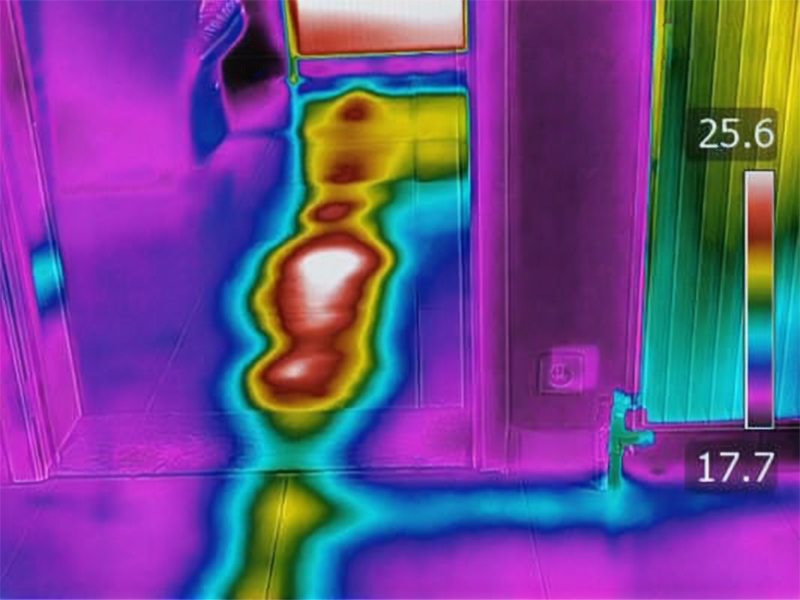One thing that is quite frustrating as a facility manager is not knowing if something is broken. Leak detection in your plumbing is essential, but how can you fix something if you don’t know what is wrong?
This article is meant to give you a few tools that you may be able to use to find the issue, diagnose the problem, and fix it in a timely manner. After all, facility managers aren’t experts in all things, and that includes leak detection. So, it’s important to have helpful guides like this one to help you excel at your job.
Here are 4 easy steps to detect and fix leaks at your commercial facility:
In any commercial building, plumbing issues can be costly and disruptive. It is essential to find and fix leaks as soon as possible. The first step in leak detection is to know the signs that indicate you have one. Some common indicators include:
These are just a few of the signs that you may be looking for. Further investigation is needed to fix the issue. One problem that you may confront from this point is the diagnosis of the problem. If you see one of these signs, how will you know where it is coming from? That’s where leak testing comes into play.
Once you suspect a leak, it is crucial to locate its exact location. This is where leak detection technology comes into play. There are various tools and methods available for detecting leaks in plumbing systems, such as:
Infrared cameras
Before we dive into how infrared cameras can help with leak detection, it's important to understand how they work. Infrared cameras, also known as thermal imaging cameras, use infrared radiation to produce images. This technology allows them to capture and visualize the heat energy emitted by objects, including water.

One of the main benefits of using infrared cameras is their ability to detect temperature differences. As water leaks from a pipe, it will typically be at a cooler temperature than the surrounding materials. This temperature difference can be detected by an infrared camera, allowing plumbers to pinpoint the exact location of the leak.
Find out more about Leak Detection.
Acoustic sensors
Acoustic sensors can detect the sound of water dripping or flowing through pipes. Acoustic sensors are a type of technology that uses sound waves to detect changes in the environment. In the context of leak detection, acoustic sensors can be used to find leaks in plumbing systems within commercial buildings.
By using acoustic sensors, the process of leak detection becomes much more efficient and accurate. These sensors are placed along the plumbing system and can detect changes in sound patterns caused by leaks. This allows for quick identification of potential problem areas, saving time and resources.
Pressure testing
One effective method for leak detection in commercial buildings is pressure testing. This process involves using air or water pressure to identify leaks in a plumbing system. During the test, a plumber will pressurize the plumbing system and monitor any drops in pressure to determine if there are any leaks present.
Dye testing
Dye testing, also known as tracer dye testing, involves adding a fluorescent or colored dye into the plumbing system to identify any potential leaks. The dye is mixed with water and flushed through the pipes, allowing it to flow along with the water. If there are any leaks in the system, the dye will seep out and be visible on the surface, making it easier to locate the source of the leak.
Dye testing offers several advantages over other leak detection methods. First and foremost, it is a non-invasive technique that does not require any digging or cutting into walls or pipes. This makes it a cost-effective option as it minimizes damage and repair costs. Additionally, dye testing is a quick and efficient process that can detect leaks in hard-to-reach areas, such as under slabs or behind walls.
Now that we have discussed several different leak detection methods, it’s important to find out which one would be right for you. Be sure you discuss it with a professional plumbing expert (like the professional experts at Rubicon) to find the solution that’s right for you.
If you notice a small leak in your commercial building, there are some DIY solutions that you can try before calling a professional plumber. For example, using plumber's tape or epoxy putty can temporarily seal small cracks or holes in pipes or fixtures. However, these solutions are only temporary fixes and may not address the underlying issue. It's best to have a professional plumber assess the situation and provide a long-term solution.
While it's essential to know how to fix a leak in your commercial building, it's even better to prevent leaks from occurring in the first place. Regular maintenance is key to keeping your plumbing system in good condition. This includes scheduling routine inspections, fixing any minor issues promptly, and investing in high-quality fixtures and pipes.
For major leaks that cannot be fixed with DIY solutions, it's crucial to call a professional plumber immediately, like Rubicon. We have the necessary skills, tools, and expertise to fix the issue properly and prevent further damage to your building. Some common methods used by Rubicon to fix leaks include pipe replacements, re-piping, fixture repairs or replacements, and more!
To find success in detecting your leak, and in fixing your leak, it will most likely require professional help. That is why Rubicon will be here for you every step of the way. We can help you to find the leak, diagnose the problem, and be sure that you get your leak fixed in a timely manner. Rubicon has a reputation for getting the job done right the first time. For your next plumbing problem, be sure to call Rubicon. You’ll be glad you did.